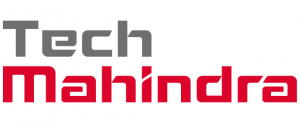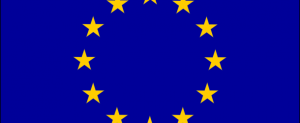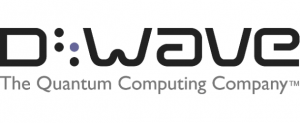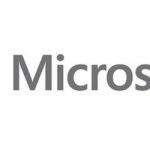Quantum News Briefs September 26: IQM Quantum Computers to Deliver Czech Republic’s First Quantum Computer With Unique Star Topology • Tech Mahindra Signs MoU with University of Auckland to Drive AI & Quantum Research • EU’s Chips Joint Undertaking Opens €65M Call for Quantum Chip Innovation in Europe • D-Wave and Staque Announce Strategic Partnership to Accelerate Annealing Quantum Computing Adoption Across the Middle East • JPMorgan Chase, Wells Fargo Push Past Laggard Banks in Quantum Computing

IQM Quantum Computers to Deliver Czech Republic’s First Quantum Computer With Unique Star Topology
 IQM Quantum Computers (IQM), a global leader in designing, building, and selling superconducting quantum computers, announced in September 26 news release that the company has won a contract to deliver the Czech Republic’s first quantum computer to be installed at the IT4Innovations National Supercomputing Centre in Ostrava.
IQM Quantum Computers (IQM), a global leader in designing, building, and selling superconducting quantum computers, announced in September 26 news release that the company has won a contract to deliver the Czech Republic’s first quantum computer to be installed at the IT4Innovations National Supercomputing Centre in Ostrava.
The contract is part of the European High Performance Computing Joint Undertaking (EuroHPC JU) program. This will be the first quantum computer in an HPC centre that will run on IQM´s unique Star Architecture, where 24 qubits are connected to a central resonator. The proprietary star topology QPU is designed to work more efficiently with IQM’s latest quantum error correction and other complex algorithms.
The quantum computer is being built as part of the nine-nation LUMI-Q consortium. It will be available to a wide range of end-users, from the scientific community to industry and the public sector, to actively explore applications and algorithms.
The EuroHPC Joint Undertaking has a budget of around €7 billion for the period 2021-2027 and is funding the procurement of quantum computers for European HPC centres. This will address the growing demand for quantum computing resources from European industry and research institutions, along with the development of a wide range of industrial and scientific applications.
Tech Mahindra Signs MoU with University of Auckland to Drive AI & Quantum Research
 Tech Mahindra has signed a memorandum of understanding (MoU) with the University of Auckland (UoA) to foster innovation in artificial intelligence (AI), machine learning (ML), and quantum computing according to September 25 news release.. The partnership will focus on driving advancements across industries such as healthcare, banking, financial services, insurance, and government, while strengthening collaboration between industry and academia to boost graduate employability.
Tech Mahindra has signed a memorandum of understanding (MoU) with the University of Auckland (UoA) to foster innovation in artificial intelligence (AI), machine learning (ML), and quantum computing according to September 25 news release.. The partnership will focus on driving advancements across industries such as healthcare, banking, financial services, insurance, and government, while strengthening collaboration between industry and academia to boost graduate employability.
The collaboration will also focus on cutting-edge AI and ML technologies, such as spiking neural networks and 1-bit LLMs (Large Language Model). In addition, Tech Mahindra will be advancing quantum security through post-quantum cryptography. Additionally, the organizations will leverage AI and quantum ML in healthcare, with applications such as drug discovery and digital biomarkers for personalized therapy, enabling innovations in the healthcare sector globally.
Joint research initiatives between UoA and Tech Mahindra will further integrate academic data resources and expert research insights to develop industry use cases for global markets. The collaboration will introduce Generative AI and its benefits to Indigenous communities and offer internships at Tech Mahindra, providing potential candidates with the opportunity to learn AI, ML, and other emerging technologies.
EU’s Chips Joint Undertaking Opens €65M Call for Quantum Chip Innovation in Europe
 The EU’s Chips Joint Undertaking (Chips JU) opened calls to support semiconductor research and innovation initiatives as per the September 25 news release. This is the first such call in quantum technologies to step up investment in frontier technologies, in particular quantum chips for computing and sensing.
The EU’s Chips Joint Undertaking (Chips JU) opened calls to support semiconductor research and innovation initiatives as per the September 25 news release. This is the first such call in quantum technologies to step up investment in frontier technologies, in particular quantum chips for computing and sensing.
EU funding for this call of €65 million (~US$72.54 million) is expected to be matched by the participating states of the Chips JU. This is part of the €200 million EU investment in quantum chips envisaged under the Chips JU over the next three years.
The call will select projects for the development and manufacturing-of quantum technologies to enhance innovation in Europe and pave the way for establishing a manufacturing supply chain for quantum chips in Europe. The closing date for proposals for these calls is January 21, 2025 at 17:00 CET.
Interested organizations can apply for funding through the Funding and Tender Opportunities portal and the Chips JU website.
D-Wave and Staque Announce Strategic Partnership to Accelerate Annealing Quantum Computing Adoption Across the Middle East
 D-Wave Quantum Inc. (NYSE: QBTS), a leader in quantum computing systems, software, and services and the world’s first commercial supplier of quantum computers, and Staque, a leading consulting and development practice in AI, blockchain and quantum computing, ca new strategic partnership aimed at accelerating the commercial adoption of annealing quantum computing across the Middle East. The partnership was revealed at Qubits UAE.
D-Wave Quantum Inc. (NYSE: QBTS), a leader in quantum computing systems, software, and services and the world’s first commercial supplier of quantum computers, and Staque, a leading consulting and development practice in AI, blockchain and quantum computing, ca new strategic partnership aimed at accelerating the commercial adoption of annealing quantum computing across the Middle East. The partnership was revealed at Qubits UAE.
Together, D-Wave and Staque will focus on helping customers develop and deploy quantum and hybrid quantum applications designed to address enterprise optimization and AI problems. The companies plan to use D-Wave’s quantum computers and hybrid solvers, accessible through D-Wave’s Leap™ quantum cloud service, to explore quantum applications that address complex challenges facing today’s organizations, including supply chain management, utility grid optimization, portfolio optimization and port optimization, just to name a few.
The partnership comes as countries in the Middle East are focused on diversifying economic sources away from oil production and exports, expanding into areas such as logistics, financial services and advanced technology, according to the International Monetary Fund.
In Other News: American Banker Reports “JPMorgan Chase, Wells Fargo Push Past Laggard Banks in Quantum Computing”
 JPMorgan Chase, Wells Fargo, Citigroup and HSBC are among the banks testing quantum computing’s ability to speed up applications, to alleviate bottlenecks, to protect digital assets and to use high-performance computing without ramping up energy consumption. They believe this will give them a competitive advantage when the technology is available for everyday use.
JPMorgan Chase, Wells Fargo, Citigroup and HSBC are among the banks testing quantum computing’s ability to speed up applications, to alleviate bottlenecks, to protect digital assets and to use high-performance computing without ramping up energy consumption. They believe this will give them a competitive advantage when the technology is available for everyday use.
“I think this is a crucial time,” said Marco Pistoia, head of global technology applied research at JPMorgan Chase. “It’s critical at this point to invest in building a quantum team. . . . it’s important to become quantum-ready now.”
Marco Pistoia; Managing Director, Head of FLARE, Distinguished Engineer, JPMorgan Chase & Co. Will Speak on “Quantum AI in Banking and Finance at Quantum + AI” in NYC, October 29-30
HSBC recently said it has piloted the first application of quantum-secure technology, to protect its platform for buying and selling tokenized physical gold, from future quantum computing attacks.
Wells Fargo developers have worked with IBM to create nearly a dozen quantum algorithms. Goldman Sachs researchers have been working with technologists at Amazon Web Services to assess the practicality of quantum algorithms. Mastercard is working with D-Wave to test quantum computing’s potential to optimize its loyalty rewards program.



















